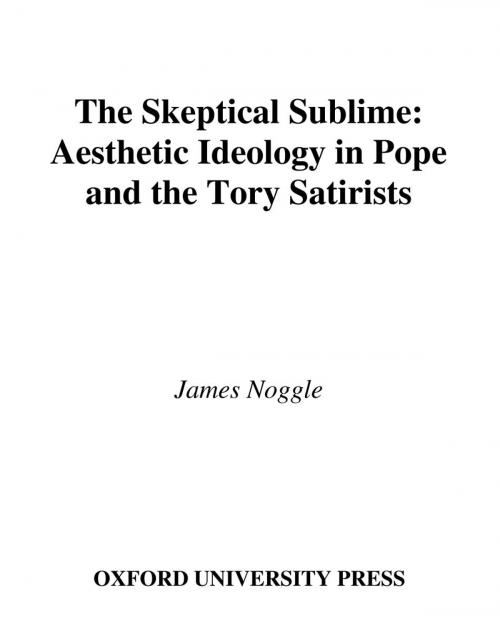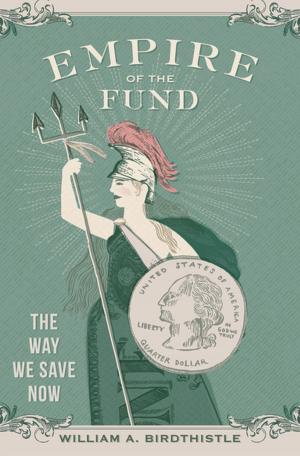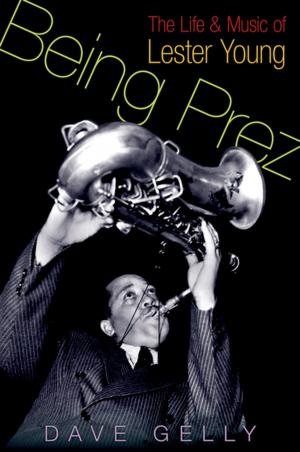The Skeptical Sublime
Aesthetic Ideology in Pope and the Tory Satirists
Fiction & Literature, Literary Theory & Criticism, British| Author: | James Noggle | ISBN: | 9780190286552 |
| Publisher: | Oxford University Press | Publication: | November 1, 2001 |
| Imprint: | Oxford University Press | Language: | English |
| Author: | James Noggle |
| ISBN: | 9780190286552 |
| Publisher: | Oxford University Press |
| Publication: | November 1, 2001 |
| Imprint: | Oxford University Press |
| Language: | English |
This book argues that philosophical skepticism helps define the aesthetic experience of the sublime in late seventeenth- and eighteenth-century British literature, especially the poetry of Alexander Pope. Skeptical doubt appears in the period as an astonishing force in discourse that cannot be controlled--"doubt's boundless Sea," in Rochester's words--and as such is consistently seen as affiliated with the sublime, itself emerging as an important way to conceive of excessive power in rhetoric, nature, psychology, religion, and politics. This view of skepticism as a force affecting discourse beyond its practitioners' control links Noggle's discussion to other theoretical accounts of sublimity, especially psychoanalytic and ideological ones, that emphasize the sublime's activation of unconscious personal and cultural anxieties and contradictions. But because The Skeptical Sublime demonstrates the sublime's roots in the epistemological obsessions of Pope and his age, it also grounds such theories in what is historically evident in the period's writing. The skeptical sublime is a concrete, primary instance of the transformation of modernity's main epistemological liability, its loss of certainty, into an aesthetic asset--retaining, however, much of the unsettling irony of its origins in radical doubt. By examining the cultural function of such persistent instability, this book seeks to clarify the aesthetic ideology of major writers like Pope, Swift, Dryden, and Rochester, among others, who have been seen, sometimes confusingly, as both reactionary and supportive of the liberal-Whig model of taste and civil society increasingly dominant in the period. While they participate in the construction of proto-aesthetic categories like the sublime to stabilize British culture after decades of civil war and revolution, their appreciation of the skepticism maintained by these means of stabilization helps them express ambivalence about the emerging social order and distinguishes their views from the more providentially assured appeals to the sublime of their ideological opponents.
This book argues that philosophical skepticism helps define the aesthetic experience of the sublime in late seventeenth- and eighteenth-century British literature, especially the poetry of Alexander Pope. Skeptical doubt appears in the period as an astonishing force in discourse that cannot be controlled--"doubt's boundless Sea," in Rochester's words--and as such is consistently seen as affiliated with the sublime, itself emerging as an important way to conceive of excessive power in rhetoric, nature, psychology, religion, and politics. This view of skepticism as a force affecting discourse beyond its practitioners' control links Noggle's discussion to other theoretical accounts of sublimity, especially psychoanalytic and ideological ones, that emphasize the sublime's activation of unconscious personal and cultural anxieties and contradictions. But because The Skeptical Sublime demonstrates the sublime's roots in the epistemological obsessions of Pope and his age, it also grounds such theories in what is historically evident in the period's writing. The skeptical sublime is a concrete, primary instance of the transformation of modernity's main epistemological liability, its loss of certainty, into an aesthetic asset--retaining, however, much of the unsettling irony of its origins in radical doubt. By examining the cultural function of such persistent instability, this book seeks to clarify the aesthetic ideology of major writers like Pope, Swift, Dryden, and Rochester, among others, who have been seen, sometimes confusingly, as both reactionary and supportive of the liberal-Whig model of taste and civil society increasingly dominant in the period. While they participate in the construction of proto-aesthetic categories like the sublime to stabilize British culture after decades of civil war and revolution, their appreciation of the skepticism maintained by these means of stabilization helps them express ambivalence about the emerging social order and distinguishes their views from the more providentially assured appeals to the sublime of their ideological opponents.















